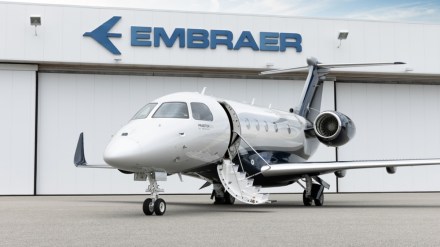India and Brazil are witnessing a significant strengthening of ties in the civil aviation sector, with Embraer, Brazilian aerospace company, playing a pivotal role. Embraer has established a strong presence in India, contributing to the country’s aerospace ecosystem through its commercial aircraft, business jets, and defence systems.
Expanding Commercial Aviation with Star Air
Star Air, an Indian regional airline, operates a full-Embraer fleet, including the E175 and ERJ145 aircraft. Since May 2023, Star Air has been operating the E175, a highly popular model known for its efficiency and performance. With a total of four leased E175s, Star Air is poised to enhance its network flexibility and efficiency. Notably, Star Air is the first Indian airline to offer business class seats on regional routes, marking a significant milestone in India’s aviation sector.
The E175, Embraer’s best-selling aircraft, has a global reputation for stimulating regional aviation with its outstanding economics and performance capabilities. In the United States, it leads the market in the up to 150-seat jet segment. Designed for domestic and regional operations, the E-Jets E2 family, including the E175, is ideally suited to open and develop new routes across India. This capability is crucial for connecting metro to non-metro cities, which are expected to drive growth in the coming years.
Future Technologies and Sustainability
Embraer is also at the forefront of developing future aviation technologies aimed at achieving net-zero carbon emissions by 2050. In November 2021, the company introduced the Energia family of concept aircraft, focusing on hybrid-electric and hydrogen-electric propulsion. These innovations promise significant reductions in CO2 emissions and represent a technically realistic and economically feasible pathway to net-zero.
The Energia Hybrid models (E19-HE and E30-HE) and the Energia H2 Fuel Cell variants (E19-H2FC and E30-H2FC) are designed to offer up to 90% CO2 emissions reduction and zero CO2 emissions, respectively, using sustainable aviation fuel (SAF) and hydrogen propulsion. These aircraft are expected to be technologically ready by the early 2030s and 2035, respectively.
Embraer has already demonstrated its commitment to sustainability with successful operations of the E-Jets E2 family using 100 percent SAF. In August 2021, the company completed the first flight of its Electric Demonstrator, a 100 percent electric single-engine EMB-203 Ipanema. Plans for a hydrogen fuel cell demonstrator by 2025 and the development of an eVTOL (electric vertical takeoff and landing) vehicle by Eve, a spin-off company, further highlight Embraer’s innovative approach to sustainable aviation.
Commitment to Carbon Neutrality
Embraer aims to be carbon neutral by 2040, with a goal of achieving carbon-neutral growth from 2022. The company plans to implement 25 percent SAF usage in its operations by 2040 and transition to 100 percent renewable energy sources by 2030. The E-Jets E2 family already contributes to lower carbon emissions compared to larger narrow-body aircraft, with potential reductions of up to 50 percent compared to prior-generation models like the Boeing 737-800 or Airbus A320ceo.
The E195-E2, part of the E-Jets E2 family, had its maiden test flight using 100 percent SAF in June 2022 and is certified for 50 percent SAF use, with ongoing efforts to certify 100 percent SAF for commercial flights. This strategy is integral to Embraer’s efforts to further reduce emissions in the coming years.
Strengthening Bilateral Relations
The growing cooperation between India and Brazil in the civil aviation sector, spearheaded by Embraer’s innovations and sustainable practices, exemplifies the deepening strategic partnership between the two countries. This collaboration not only enhances India’s aviation capabilities but also contributes to global efforts towards a more sustainable and environmentally friendly aviation industry.
